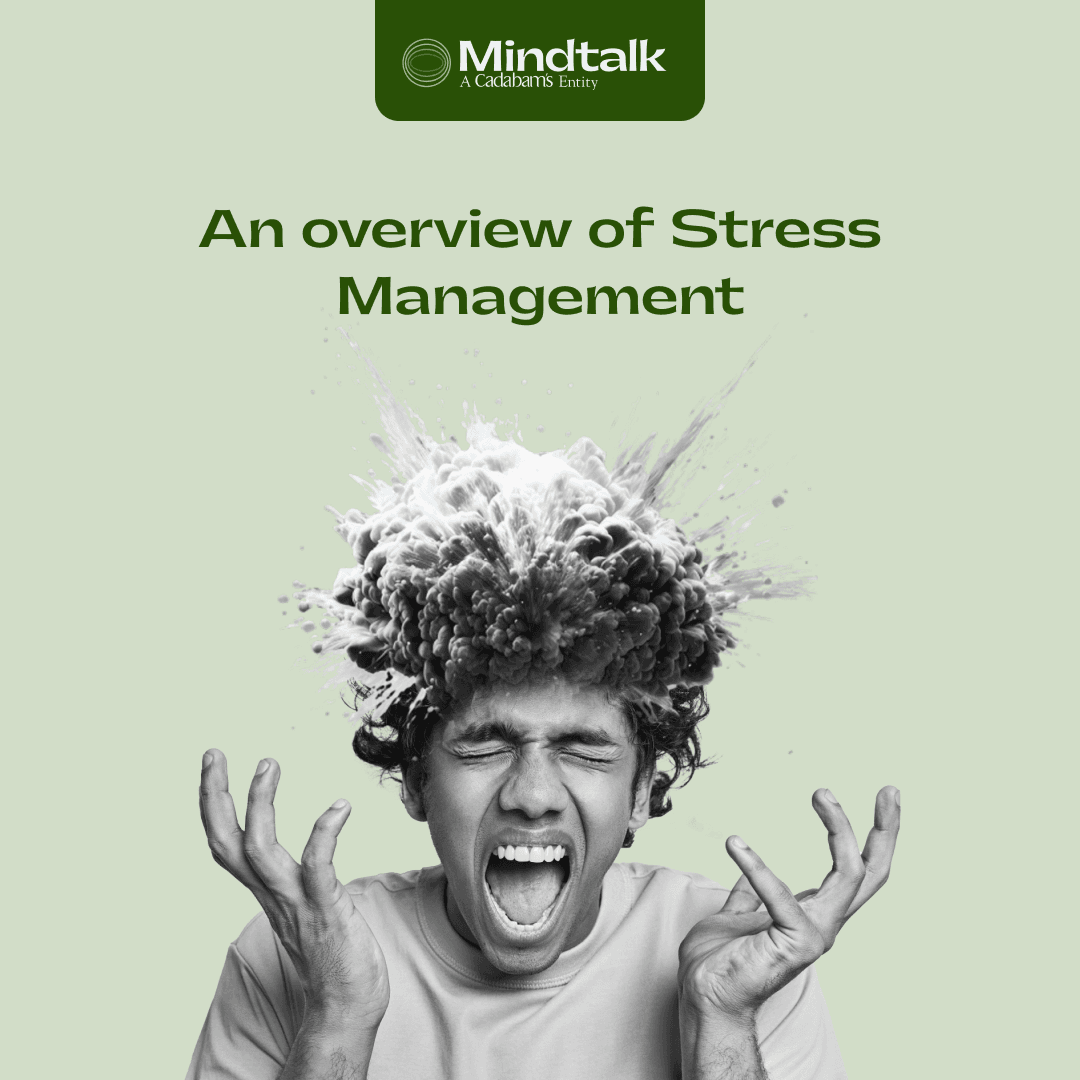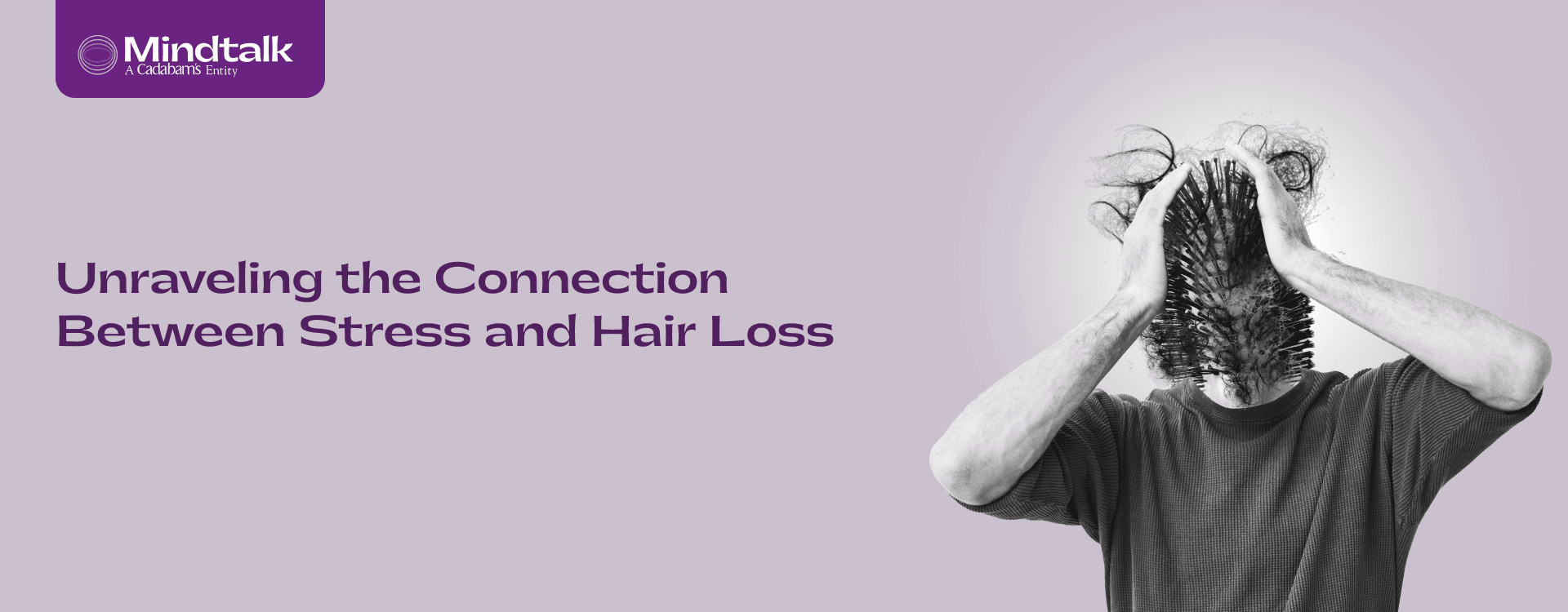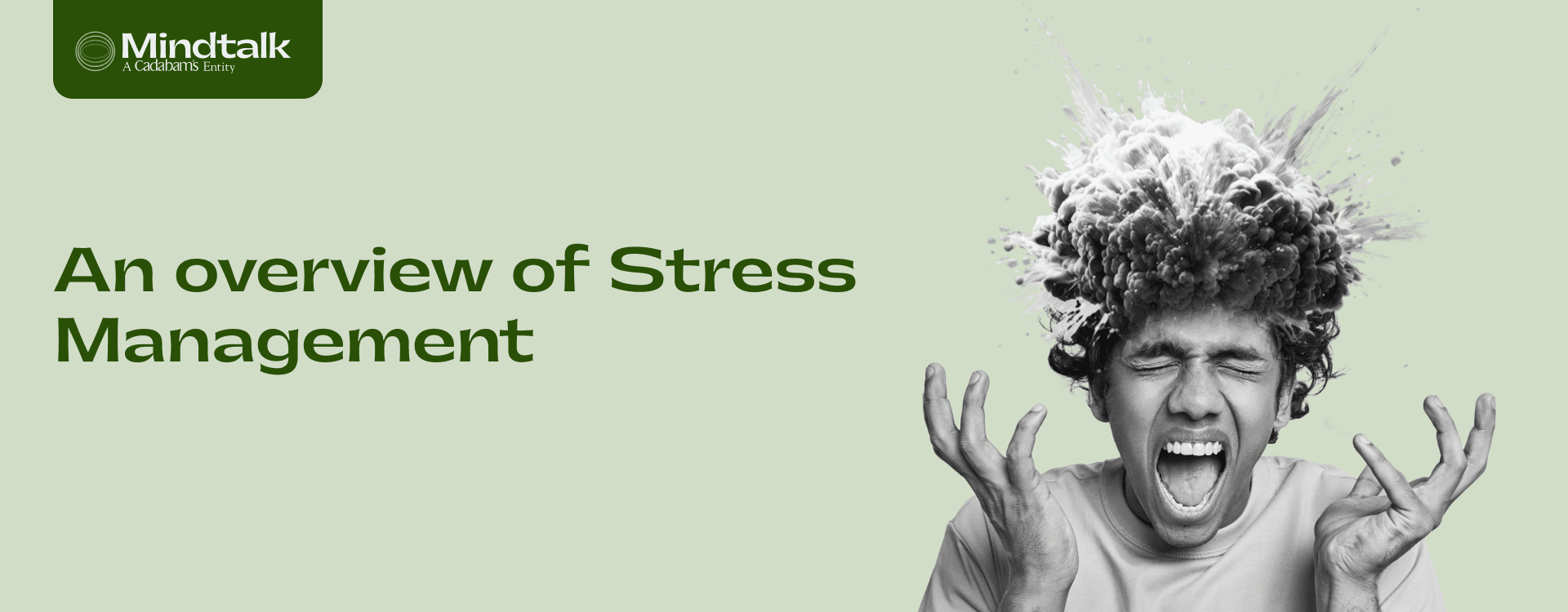Stress Management: Mastering The Art Of Balance

Stress management is a bit more than following a string of instructions to eventually find peace and calm. It’s a bit more complicated than that. In this blog, we shall explore the art of balancing between your priorities and reducing stress.
Understanding Stress
Understanding stress is key to identifying its root causes and how it manifests in our everyday lives. In broad terms, stress is the body’s natural reaction to real or perceived threats and harmful scenarios. These threats trigger a fight or flight response, often leading to increased heart rates, anxiety and other emotional and physical symptoms.
What Is Stress Management?
Stress management is a diverse set of techniques, therapies and strategies to cope with stress and reduce the impact it has on you in the long run. Not all strategies may work for you, which is why stress management strategies are highly flexible and diverse, allowing you to drive your journey towards reduced stress. These techniques are mainly aimed at helping you regulate your thoughts, restructure your negative behaviors and reducing the impact that stress has on your overall mental health.
Causes And Triggers Of Stress
The specific causes and triggers of stress can vary depending on a person’s everyday experiences, family and more. That said, some common stress inducing factors include financial worries, relationship issues, health-related concerns, regular exposure to social injustices, work stress, family responsibilities among others.
Why Is Stress Management Important?
Effective stress management helps you tackle existing forms of stress and provides means to resiliently prevent stress in the long run. It helps you maintain cognitive function and healthy relationships, while preventing burnout from work or personal responsibilities. By reducing the impact of stress, you can boost productivity, and develop healthier coping mechanisms for navigating life's challenges.
Signs And Symptoms Of Stress
Stress manifests in different ways among different people and are mostly categorized by their physical and mental impacts. Some of the common symptoms of stress are as follows.
Physical Signs
Some of the most common physical signs of stress include drops in energy, migraines or headaches, pains across the body, muscle stiffness, nausea, increased heart rate, fatigue, digestive issues, and changes in appetite or sleep patterns.
Emotional And Mental Signs
Stress can affect your mental state in many ways. You may feel irritable or frustrated. You may feel overwhelmed or find yourself losing control of your own thoughts. Other symptoms include low self-esteem, forgetfulness, mood swings, difficulty concentrating, feeling lonely, constant worry, trouble relaxing and more.
What Are The Effects Of Prolonged Stress?
While stress is common among people of various backgrounds and experiences, prolonged stress can have negative mental consequences in the long run. Some of the common effects of prolonged stress are as follows.
Mental Health Problems
Prolonged stress has been linked to an increased risk of mental health conditions such as anxiety, depression, personality disorders and other mood-related troubles. People with existing mental health issues may face further troubles in dealing with them and getting rid of the cycle of negative thoughts and behaviors that come as a result of these conditions.
Gastrointestinal Problems
While physical consequences of stress vary from person to person, it has been observed that stress can lead to gastrointestinal problems such as indigestion, gastritis, acid reflux, ulcerative colitis, irritable bowel syndrome among others. Managing stress can thus help maintain a healthy gut and prevent gastrointestinal issues.
Stress Management Techniques
Stress management techniques offer people diverse ways to deal with the difficulties of stress and lead them to a healthier life. Stress management techniques come in various forms and can be applied to your life according to your personal struggles and requirements. Some of the common stress management techniques include the following.
Exercise Regularly
You can’t go wrong with exercise, but beyond the well-known physical benefits of working out regularly, a fit body can also contribute to a stress-free mind. Regular physical activity releases endorphins and reduces stress hormones. It has also proven to improve your mood throughout the day.
Practice Mindfulness And Meditation
Mindfulness techniques and meditation allow you to stay in the present and connect with yourself with clarity and calmness. They promote relaxation, reduce irritability and enhance a sense of self-awareness, which is key to identifying your stressors and keeping a mindful approach towards tackling them.
Get Adequate Sleep
Establishing a consistent sleep routine can do wonders for your mental health, helping you not just stay cognitively sharp, but also create structure and organization in life. While personal commitments may come in the way of consistent sleep, try to achieve at least 7 hours of sleep a day for better mood regulation and resilience from stress.
Maintain A Healthy Diet
A well-rounded diet provides your body the essential nutrients to support your overall health, which is key to building resilience to stress. Studies have shown that nutrition can play a role in the impact of mental health issues on individuals, and by avoiding sugar, caffeine and processed foods and adopting a nutrient rich diet with vegetables, lean protein and whole grains, you can take the first step towards stress resistance.
Set Realistic Goals
The beauty of goals is that it provides you with a sense of purpose, but it is essential to break down tasks you want to complete into realistic steps or segments such that every small step feels like a victory. This makes you feel less overwhelmed and stressed. Try to prioritize between your responsibilities and allow yourself to be a bit flexible while setting goals.
Deep Breathing Exercises
Deep breathing exercises are particularly good at reducing the impact of stress on a person because it helps reduce the body’s heart rate and calms down the body during times of increased stress. Practicing techniques such as diaphragmatic breathing and box breathing will help you prepare against sudden bursts of stress.
Practice Positive Self-Talk
Saying positive things to yourself repeatedly sounds simple but is effective over time. It helps you challenge overwhelming, negative thoughts and promotes optimism and resilience. It allows you to replace self-criticism with positive reinforcements and helps you create an internal sense of empowerment.
Take Breaks And Relax
When under stress, it is normal for us to push ourselves into activities or tasks that allow us to either fight it or bring us a positive sensation. However, it is important to take a step back to prevent burnout in the long run. Apart from your immediate responsibilities, take part in hobbies you enjoy like playing a sport or reading a book, to recharge yourself.
Advanced Stress Management Techniques
Stress, when left unaddressed, can lead to prolonged mental health problems. Mental health professionals thus employ advanced techniques that are aimed at producing long lasting results for the person dealing with it. These research-backed therapeutic modalities include:
Cognitive Behavioral Techniques
Cognitive Behavioral Therapy or CBT is an advanced technique that aims to identify negative thought patterns that lead to stress, challenge it over time and generate coping strategies based on the unique issues faced by the individual. Therapists look to restructure your behaviors, tendencies and thoughts to create resilient responses to stressors.
Talk Therapy
What can’t a little talk solve! Therapeutic interventions have for decades revolved around creating connections between the therapist and the individual seeking treatment. Talk therapy provides a safe space to explore your triggers, develop coping mechanics, learn more about your own behaviors and maintain long term mental well-being through a solid, consistent support system.
Laugh Therapy
Laugh therapy is not about pretending to be happy, but a way to reduce stress hormones and promote relaxation. By engaging in laugh therapy sessions or simply engaging laughter inducing activities, you can alleviate the tension and frustration that comes with stress.
When To Seek Professional Help?
Stress is common and affects people from all walks of life, but if stress severely affects your ability to conduct everyday activities and does not seem to reduce despite self-management efforts, it is a good idea to seek professional help. A mental health professional can assess the nature and intensity of your stress and provide an adequate recovery route for you.
Mental Health Professional For Stress
Transforming Stress Management With Mindtalk's Innovative Solutions
Stress management is a structured process that can transform your ability to prevent and manage stress in the short and long term. If you or your loved one is undergoing overwhelming stress, consider Mindtalk. Our psychologists are well-equipped to understand the unique challenges of stress and provide diverse therapeutic modalities that suit you, for enhancing overall mental well-being. Speak to a professional today.



